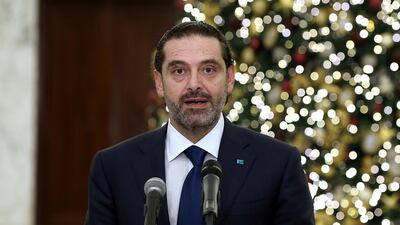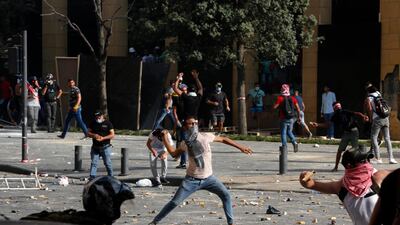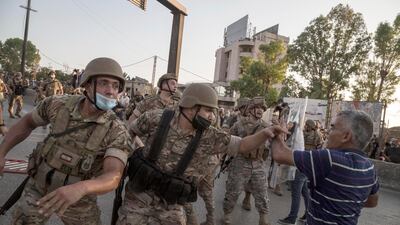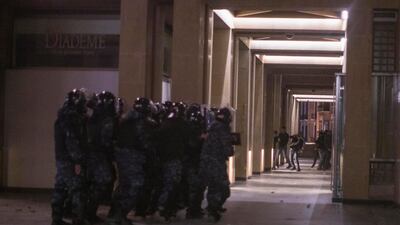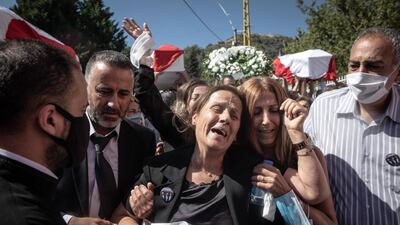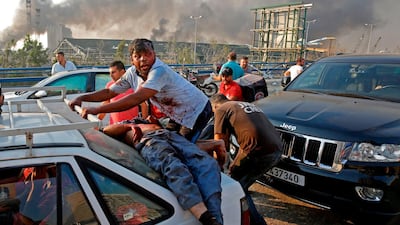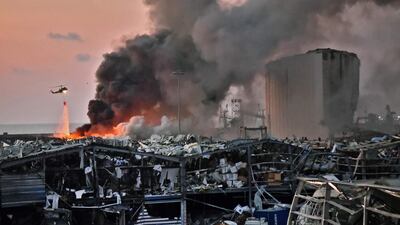Lebanon’s prime minister-designate Saad Hariri presented his Cabinet line-up to President Michel Aoun to try to break a lengthy deadlock before a visit by French President Emanuel Macron this month.
Mr Hariri put forward a Cabinet of 18 non-partisan experts, which Mr Aoun met with a proposal of his own.
Mr Aoun and Mr Hariri agreed on Wednesday to assess the exchanged proposals before "resuming their negotiations in the coming days", a source told The National.
Mr Hariri said he presented the president with a “complete Cabinet line-up of 18 ministers based on specialisation, competence and without partisan affiliation".
Lebanon - a year in pictures
Mr Macron is expected visit Beirut on December 21, his third trip since August when a huge explosion at Beirut port destroyed large parts of the capital and killed more than 200 people.
He has pressed Lebanese leaders to form a Cabinet of experts to enact key reforms and fight corruption in exchange for financial support from the international community.
There has been increased pressure from the departing US administration on the Iran-backed Lebanese group Hezbollah, an ally of Mr Aoun.
Gebran Bassil, the president's son-in-law and leader of the largest Christian parliamentary bloc, was recently hit by US sanctions.
Mr Hariri did not secure the blessing of the country’s major parties before he presented Mr Aoun with his list of candidates.
The president retaliated with a “comprehensive proposal that includes the allocation of portfolios based on clear principles", his office said.
“The president has agreed with the prime minister-designate on studying the submitted proposals and to pursue consultations to bridge the gap between these proposals,” Mr Aoun's office said.
The source said the president's proposal touched on how portfolios would be allocated among the political groups to be represented in the Cabinet, but lacked the names of candidates.
Mr Hariri’s attempt to break the deadlock follows Mr Macron’s warning that Lebanon will fail to secure support without a credible government.
Under such a scenario, more than half of Lebanon’s population will fall into poverty by 2021, the World Bank said.
International agencies said plans to cut subsidies on imports of fuel, wheat and pharmaceuticals could prove disastrous for the country's poor without proper social assistance programmes in place.
Central bank governor Riad Salameh said Banque du Liban could afford to maintain subsidies for only another two months as foreign currency reserves dwindle.
The full-blown economic crisis and waning confidence in the state and its institutions is increasing the risk of instability, caretaker interior minister Mohammad Fehmi told The National on Tuesday.
